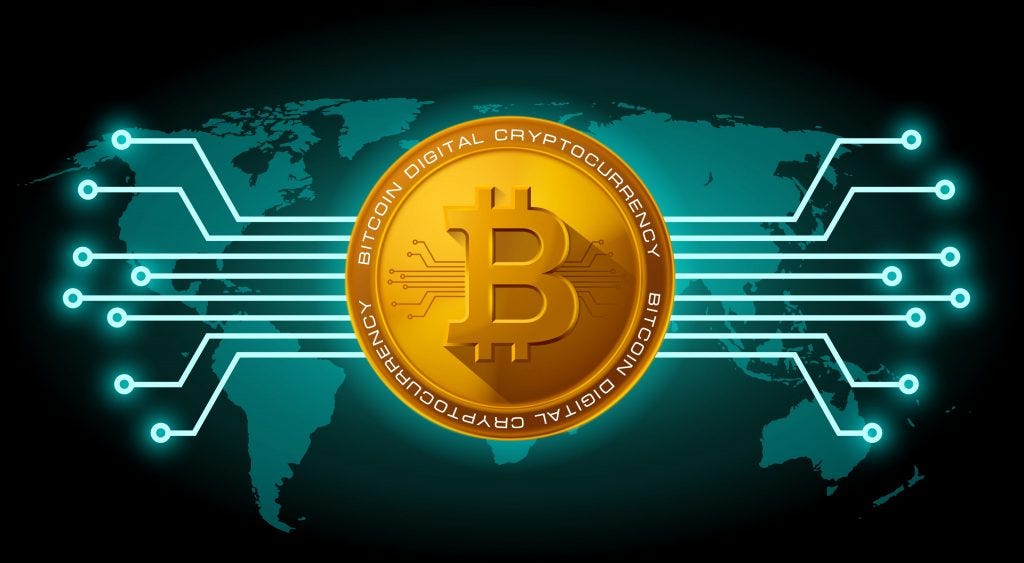 The tweet comes from Anthony Pompliano, also known as Pomp, who works at Morgan Creek Digital Asset where he runs a cryptocurrency fund.
The tweet comes from Anthony Pompliano, also known as Pomp, who works at Morgan Creek Digital Asset where he runs a cryptocurrency fund.So, have I always been wrong about Bitcoin? As anyone who reads me for a moment knows, I was skeptical about the bitcoin-as-money story. Instead of satisfying Satoshi Nakamoto's vision as a new generation medium of exchange, bitcoin has become a new type of gaming technology: an exciting zero-sum, decentralized financial game. It's a pretty useful role, but let's be honest, it's not as revolutionary as digital money.
But if the Argentineans actually hosted the races and paid the drivers directly with bitcoins, as Pompliano seems to say, I could have rejected the bitcoin scenario as a currency too quickly. That's what Satoshi Nakamoto bitcoin wanted to do, pay? So I tweeted it.
Twitter: nothing could be found in the news here. Does anyone have a solid source?
Pump: https://cointelegraph.com/news/uber-switches-to-bitcoin-in-argentina-after-govt-blocks-uber-credit-cards
Twitter: The pump was 2 years ago
Pump: does it make it less important?
And so Pomp left things behind. It looks like he has work to do.
Here are the fine print. In 2016, the city of Buenos Aires ordered the main credit card companies to block the Uber application. Stanford Law School's WILmap project provides a detailed message in this regard. The Argentineans suddenly discovered that their MasterCard and Visa cards worked for everything else, but could no longer be used to get an Uber ride.
Contra Pompliano, Uber did not respond by allowing users to buy trips with bitcoins. The company had previously indicated that anyone with a certain type of prepaid debit card could slip into Uber's embargo.
To do hacking, the first thing to do for an Argentinian was to ask for a prepaid debit card at Entropay, EcoPayz, Payoneer or ZapZap. They are non-Argentine payment companies. Entropay, for example, is based in Europe and issues Visa debit cards in collaboration with a bank in Malta, Bank of Valletta. Once Entropay has approved an Argentine account, a physical debit card is mailed to the applicant's address in Argentina or a virtual card has been immediately created. An Argentine could then access the Entropay website and use his local credit card, the same one that had been castrated by the Uber embargo, to complete the Entropay prepaid debit card. Now that the bank card is funded, it can be used locally to pay for the Uber trip.
Under the hood, prepaid cards issued by Entropay are just normal Visa cards. Therefore, when an Uber circuit was requested in Buenos Aires, an Entropay card would use the same Visa cards as the normal Argentine credit card. Why is a Visa Entropay card accepted when a normal Visa card is rejected?
The essence seems to be the following: the ban seems to have applied only to payments initiated by cards issued on the domestic market. When the payments to Uber came from Entropay or one of the cards mentioned above, they were designated as originating from abroad; in the case of Entropay, probably from the Malta-based Bank of Valletta, Entropay payments could therefore fall. That is, by exchanging national cards against international cards, the Argentineans could avoid the blockade.
Many bitcoin payment cards have also made hacking possible, including Xapo and Satoshi Tango. Maybe that's what Pomp refers to in his tweet. But it would be wrong to say that these cards allow Argentineans to "run errands with Bitcoins", as he says.
Before paying for an Uber ride, an Argentinian had to charge US dollars on the Bitcoin debit card by selling bitcoins for dollars in exchange for bitcoins. Either the owner of the card did it manually, or the card vendor quickly sold bitcoins at the time of the request for payment. In both cases, bitcoins are not passed from the cardholder to Uber. A fiduciary currency was pre-loaded on the card and there was only a regular transfer via the Visa or MasterCard network.
These bitcoin payment cards are in fact no different from gold-based payment cards. In addition, they do not differ from the right to write checks and debit cards issued by some US money market investment funds. Neither bitcoin nor gold, no investment funds

No comments:
Post a Comment